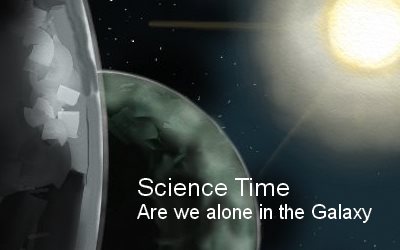Alone, in all that space?
The Universe
The Universe
Alone, in all that space? Not likely. Just do the numbers: Several hundred billion stars in our galaxy,
hundreds of billions of galaxies in the observable universe,
and 150 planets spied already in the immediate neighborhood of the sun.
hundreds of billions of galaxies in the observable universe,
and 150 planets spied already in the immediate neighborhood of the sun.
That should make for plenty of warm, scummy little ponds where life could come together
to begin billions of years of evolution toward technology-wielding creatures like ourselves.
to begin billions of years of evolution toward technology-wielding creatures like ourselves.
No, the really big question is when, if ever,
we'll have the technological wherewithal to reach out and touch such intelligence.
we'll have the technological wherewithal to reach out and touch such intelligence.
With a bit of luck, it could be in the next 25 years.
Workers in the search for extraterrestrial intelligence (SETI) would have needed more than a little luck
in the first 45 years of the modern hunt for like-minded colleagues out there.
in the first 45 years of the modern hunt for like-minded colleagues out there.
Radio astronomer Frank Drake's landmark Project Ozma was certainly a triumph of hope over daunting odds.
In 1960, Drake pointed a 26-meter radio telescope dish in Green Bank, West Virginia, at two stars for a few days each.
Given the vacuum-tube technology of the time,
he could scan across 0.4 megahertz of the microwave spectrum one channel at a time.
he could scan across 0.4 megahertz of the microwave spectrum one channel at a time.
Source: Science
Are we alone in the Universe?
The first known extrasolar planet (that is,
a planet orbiting around a normal star other than our Sun) was 51 Pegasi b, discovered only about 16 years ago.
Source: American Scientist





